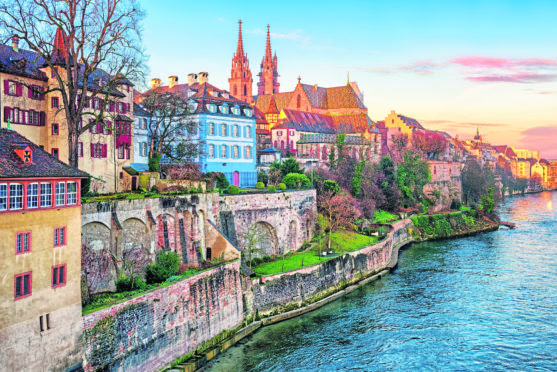Madam, – With a further six-month extension to Brexit and the can being kicked even further down the road, it was intriguing to note that the result of a nationwide referendum in Switzerland had been overturned.
The poll, held in February 2016, asked the country’s voters whether married couples and co-habiting partners should pay the same tax. Voters narrowly rejected the proposal, with 50.8% against and 49.2% in favour.
But the supreme court has now voided the result on the grounds that voters were not given full information, and the vote must be rerun.
The information provided to the electorate was judged “incomplete” and therefore “violated the freedom of the vote”, the court ruled.
During the referendum campaign, the Swiss government told voters just 80,000 of married couples were paying more tax than couples living together.
The true figure was almost half a million, the government later said.
The court’s statement noted that “keeping in mind the close result and the severe nature of the irregularities, it is possible that the outcome of the ballot could have been different.”
How refreshing this is as we look to the current situation in the UK where voters were likewise not given the full information.
The negative economic impacts of Brexit are becoming clearer and Brexiteer claims of £350 million a week to the NHS and that a deal with the EU would be “the easiest trade deal in human history” have quickly melted away.
Reality has struck, public reaction has changed and there is clear support not only for a people’s vote but for staying in the EU. As with Switzerland, now that the circumstances have changed, we deserve the right to have our say.
Alex Orr.
2 Marchmont Road,
Edinburgh.
Folly of wind investment
Madam, – Wind-generated electricity achieves none of the benefits claimed for it.
It does not reduce CO2, and is expensive and intermittent.
It destroys land and seascapes and is lethal to birds and bats.
The subsidies that create it are paid by electricity consumers, regardless of their financial circumstances, so must create fuel hardship for many.
Those subsidies then make landowners and windmill makers richer, so a more unfair scheme would be hard to imagine.
Then the hardware is imported, and the finished product creates no local employment.
And when the windmills have to be replaced, that cost will fall to the taxpayer.
In fact it is an all-round disaster. So why do we proceed with this folly?
Malcolm Parkin.
15 Gamekeepers Road,
Kinnesswood.
Contradiction of independence
Madam, – First Minister Nicola Sturgeon tells us that were Scotland to be independent, it would have a seat at the top table, hence power, within the European Union.
It is well known that the big states have the most leverage, but there is another point that she seems to have missed as well.
The Lisbon Treaty is giving more and more power to the European Parliament, where an independent Scotland would have, perhaps, 1% of the seats. At Westminster it has 9% of the seats.
Independence in Europe is a contradiction in terms.
William Ballantine.
47 The Quarryknowes,
Dean Road,
Bo’ness.
Nationalist brainwashing?
Madam – I recently attended a talk in Aberdeen, entitled Scotland’s Future History, organised by the Indyref2 group, Yes2.
The speaker, Stuart McHardy, described his 10-year campaign to get more early Scottish history taught, such as the Picts, the clans, (or tribes, as he calls them), and the Declaration of Arbroath.
He was strangely keen to make sure we know we’re not descended from the Irish.
McHardy’s view is the “toffs” have been keeping the truth from us.
People who suspect the SNP use Curriculum for Excellence to promote independence, would have felt vindicated when referring to the recent inclusion of Scots history in CfE he jokingly called it curriculum for independence.
The audience lapped it up but I thought his ideas and attitude quite sinister, conspiracy theorist, misguided at best, hateful at worst, and some confirmation of what many see as nationalist attempts to brainwash our schoolchildren.
Allan Sutherland.
1 Willow Row,
Stonehaven.
Playing politics with lives
Madam, – So Nicola Sturgeon has written an open letter to citizens from other EU countries resident in Scotland saying “this is your home, you are welcome here and we want you to stay”.
Fair enough without a doubt, though no one has suggested anything to the contrary – not even Nigel Farage.
The Scottish nationalist leader has no authority over who can live in any part of the UK.
However, Theresa May has, and since June 2016 she’s repeatedly made clear her desire and intention that EU nationals already here should remain here.
Now all three million EU citizens living in the UK have been invited by the UK Government to apply for long-term residency status after Brexit, at nil cost to them.
Ms Sturgeon is playing politics with EU citizens. She might as well say “please vote for my independence crusade”.
Martin Redfern.
Woodcroft Road,
Edinburgh.










